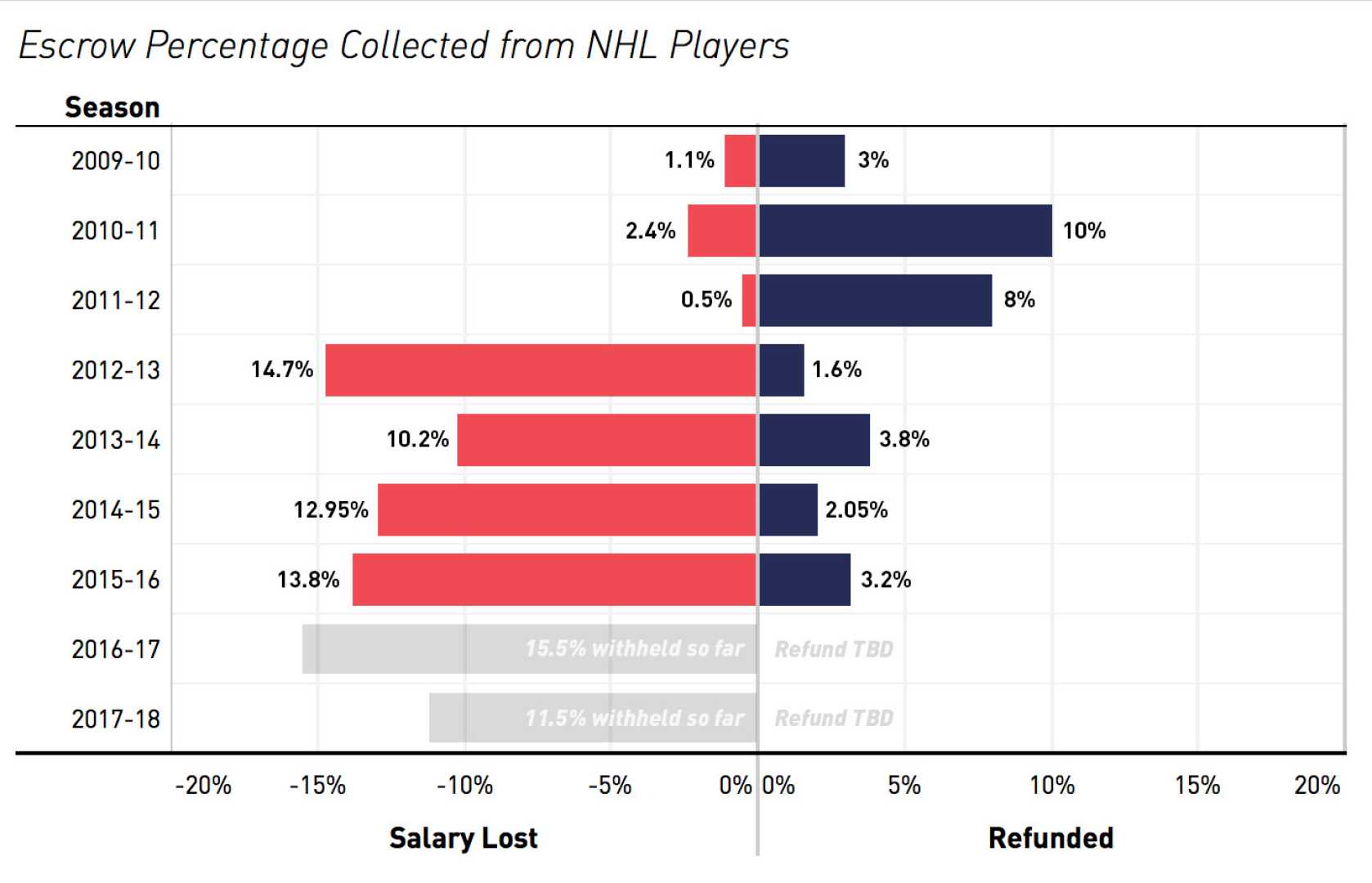Sports
NHL Teams Face Salary Cap Challenges as Season Ends

NEW YORK, NY — As the NHL regular season concludes, 11 teams are grappling with salary cap overages due to performance bonuses awarded to players on entry-level or 35-plus contracts. These bonuses have pushed several teams over the cap limit, resulting in penalties that will carry over into the 2025-26 season.
Among the affected teams, the Carolina Hurricanes face notable fluctuations, driven by a potential $1.0375 million bonus incurred by rookie defenseman for winning the Conn Smythe Trophy. They also have a guaranteed penalty of $33,000 from post-acquisition games-played bonuses. With a limited cap space and being on long-term injured reserve (LTIR), Carolina cannot afford any additional bonuses.
The Dallas Stars, also ending the season on LTIR, are set for penalties totaling $1.801 million next year, attributed to bonuses for players who were traded during the season. Detroit Red Wings, despite concluding the year with $2.02 million in cap space, will incur a six-figure penalty after awarding $2.888 million in performance bonuses.
The Edmonton Oilers find themselves in a complicated situation due to the 35-plus contract of a key player. The Oilers have already accounted for $150,000 in bonuses, with potential additional penalties related to playoff performance bonuses that could amount to an extra $100,000.
The Los Angeles Kings failed to accommodate performance bonuses that resulted in a $813,000 dead cap for next year. Meanwhile, the Minnesota Wild, ending the year with just $36,000 in cap space, will face a minimum penalty of $2.767 million as a consequence of performance bonuses accumulated by players meeting their contract thresholds.
The Montreal Canadiens‘ performance bonuses, capped by rookie’s exceptional play, may escalate their penalties depending on further postseason achievements, including potential bonuses that could hit $525,000 for winning the Conn Smythe Trophy.
The New Jersey Devils are similarly affected by LTIR restrictions, specifically regarding the absence of a key player and their resulting inability to accommodate $1 million in bonuses. The New York Islanders have maintained cap compliance due to LTIR placements, but they face challenges if their rookie achieves milestones that trigger additional bonuses.
At the other end, the St. Louis Blues are projected to incur the largest penalty among the affected teams, primarily due to a $2.225 million performance bonus from a veteran player’s contract. They will start the next season with a hefty overage carryover that could reach up to $2.153 million.
The Toronto Maple Leafs now face prospective dead cap charges should they retain particular player contracts beneath the minimum salary threshold, and potential additional penalties loom if a rookie garners further playoff success.
The situation highlights the intricate nature of the NHL salary cap system and raises questions about its rules and potential impact on team strategies as they navigate the upcoming off-season.












